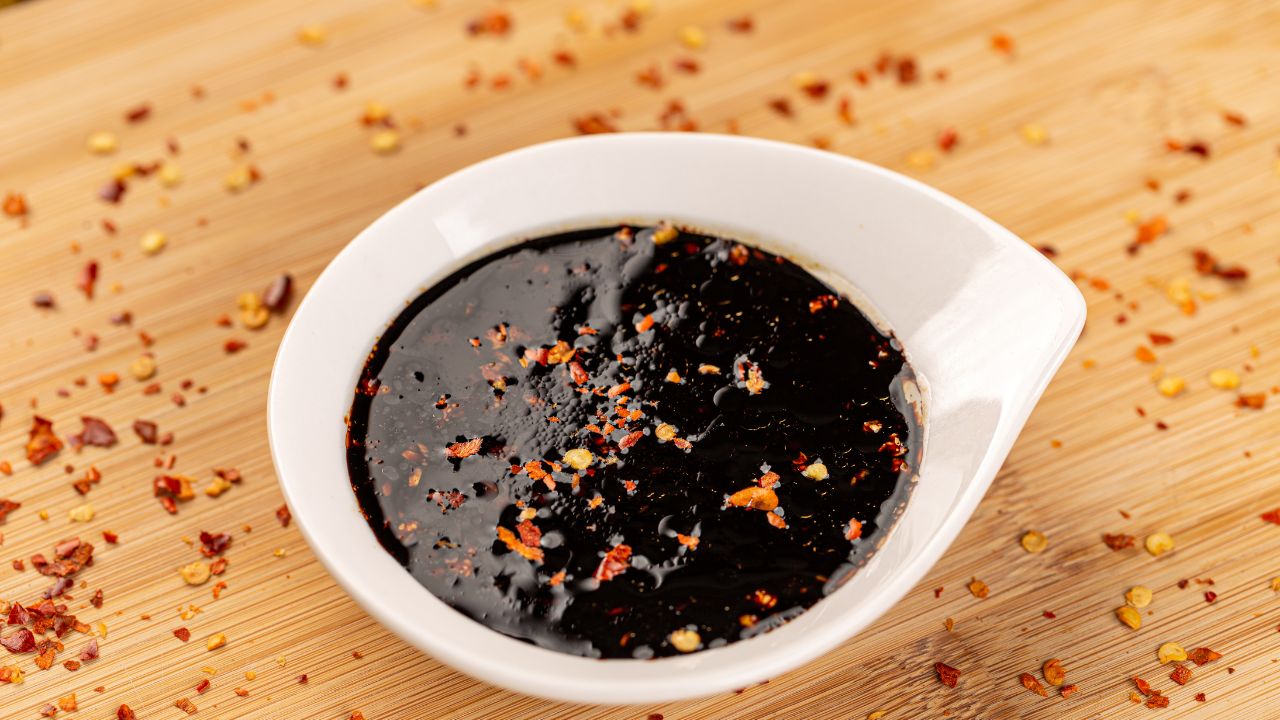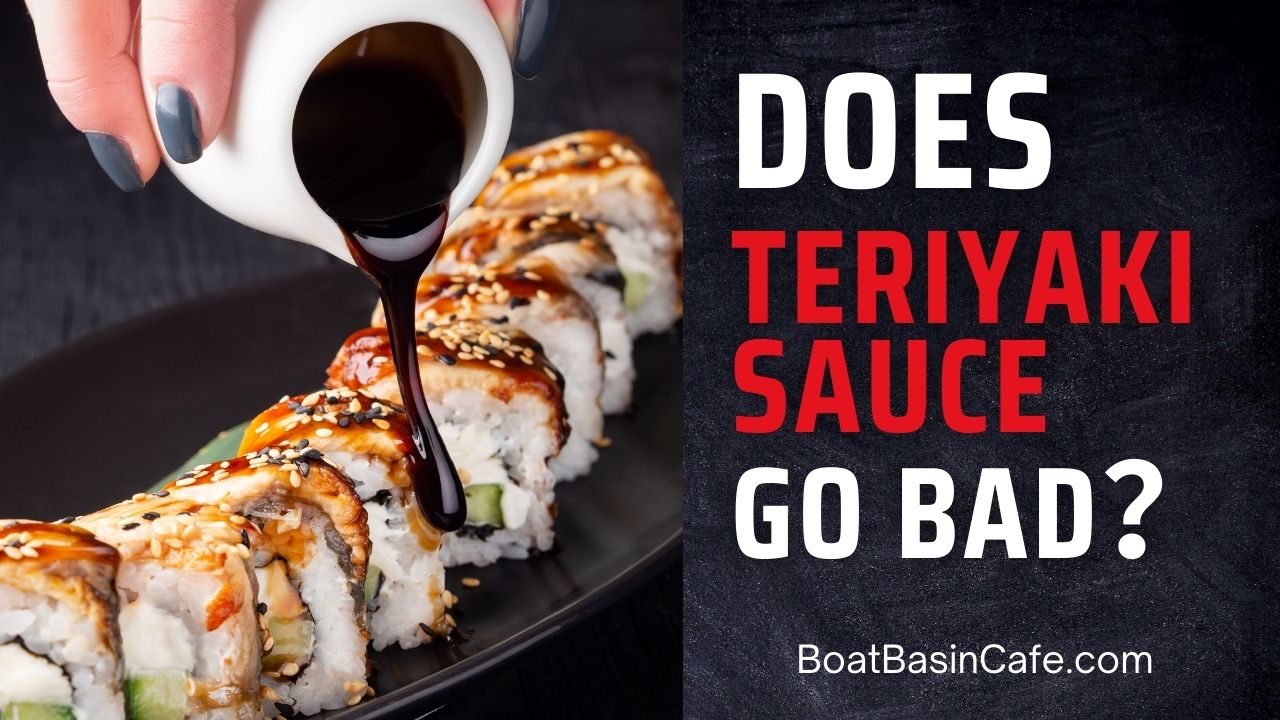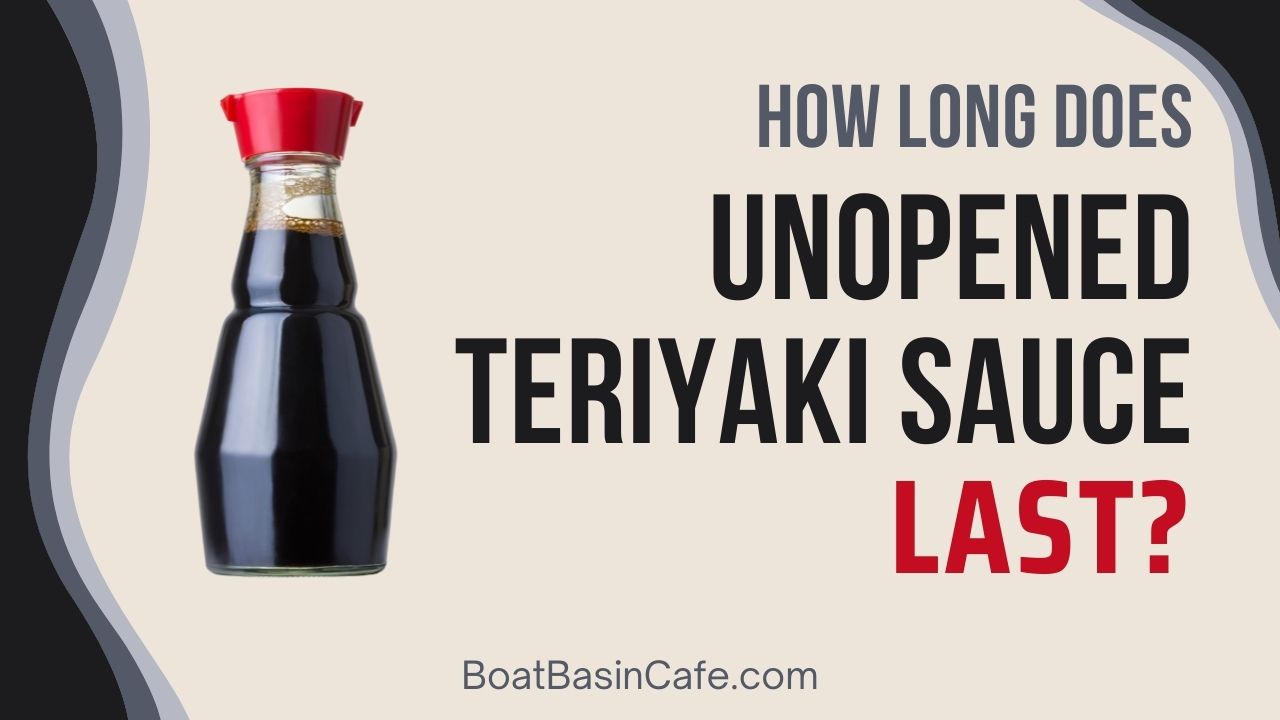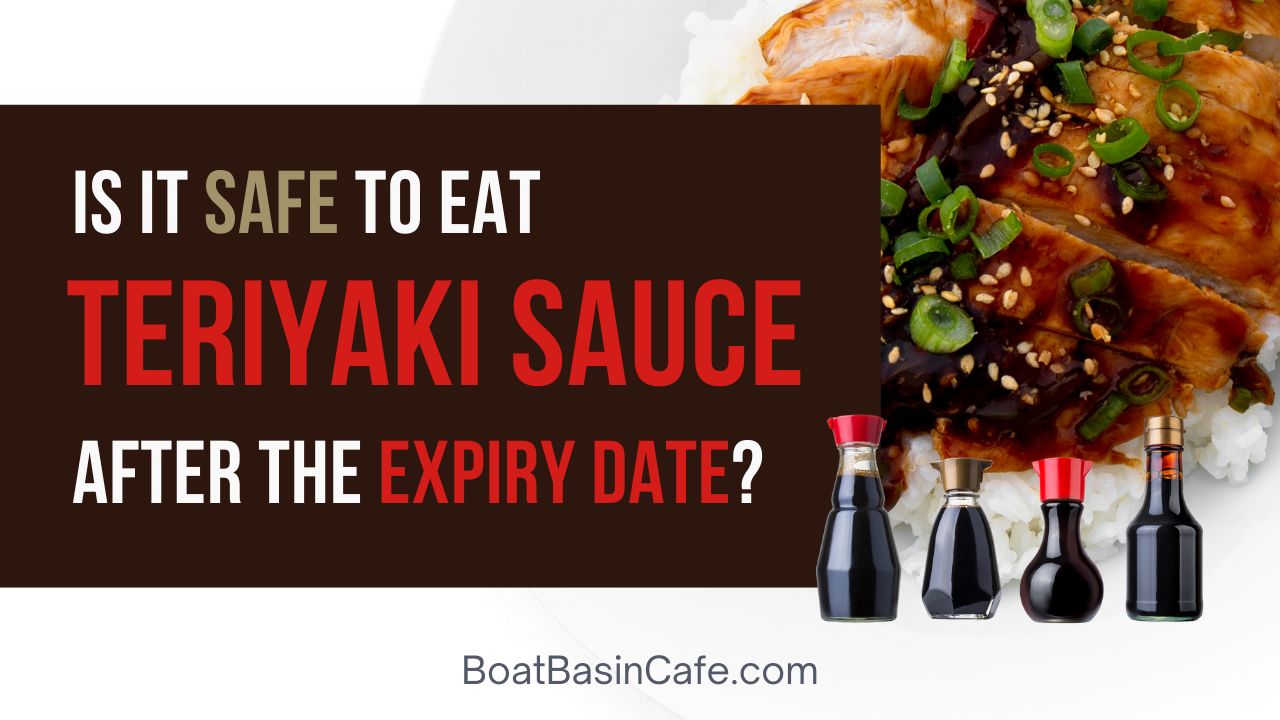Tired of wondering whether your spaghetti sauce is still safe to eat or how to keep it fresher for longer? In this guide, we’ll unravel the mystery behind spaghetti sauce expiration, storage insights, and best practices to ensure that you always have fresh and tasty sauce ready to compliment your favorite pasta dishes.
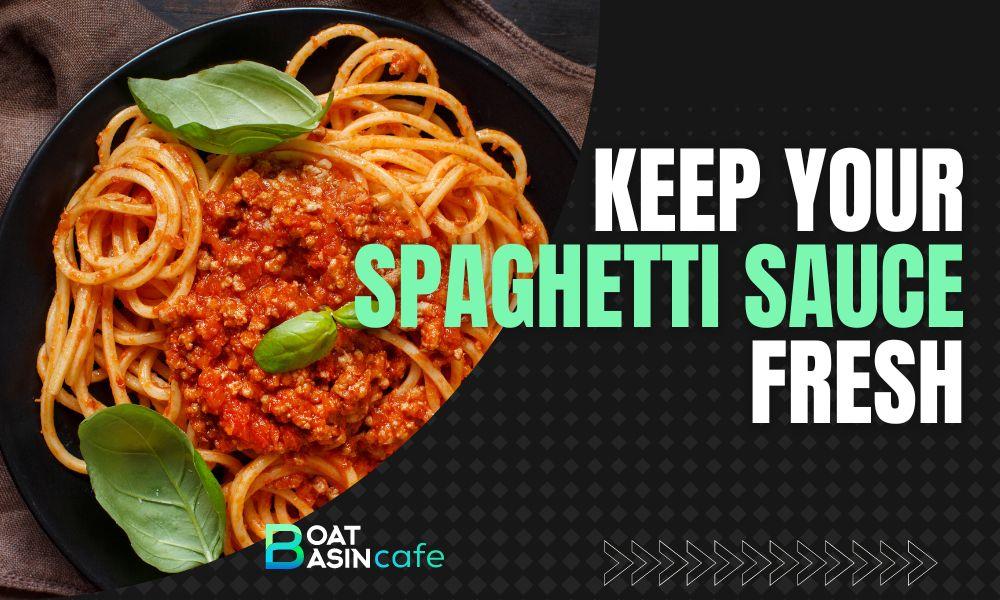
Why Does Spaghetti Sauce Expire?
Naturally, questions about expiration, shelf life, and food safety arise as we discuss preserving the integrity of our beloved spaghetti sauce. So, what factors contribute to the expiration of spaghetti sauce, and how do we tell when it’s past its prime?
Ingredients and Preservatives
Different ingredients and preservatives in your sauce may determine its shelf life. A homemade spaghetti sauce made from fresh ingredients, like tomatoes, onions, and herbs, will have a shorter shelf life than a canned sauce that contains preservatives. These additives help inhibit the growth of bacteria and mold, extending the sauce’s life but may alter its taste over time.
Packaging
Another significant factor in the shelf life of spaghetti sauce is its packaging. Storing your sauce in an airtight container, whether refrigerated or at room temperature, can help keep it fresh longer. Store-bought sauces in sealed jars or cans often have a more extended expiration date than opened containers.
Signs of Expired Spaghetti Sauce

So now that we understand the factors contributing to our spaghetti sauce’s life, what are some signs that it has reached or passed its expiration date?
Changes in Color
The first sign of spaghetti sauce spoilage is a noticeable change in color. Fresh sauce typically has a bright, vibrant hue, while spoiled sauce may appear dull or darkened. If it looks significantly different from when you first opened or made the sauce, it’s probably time to discard it.
Changes in Texture
Texture is another critical indicator of spaghetti sauce going bad. Fresh sauce has a relatively smooth consistency, while expired sauce may become thick, gelatinous, or even separated. If your sauce doesn’t seem to be the same consistency as when it was fresh, proceed with caution.
Changes in Smell
Finally, the smell of your spaghetti sauce is an essential factor in determining freshness. So, if you notice an off or sour odor coming from your sauce, it’s an unmistakable sign that something’s gone awry. Trust your nose – if it doesn’t smell right, it probably isn’t safe to consume.
Proper Storage for Longevity
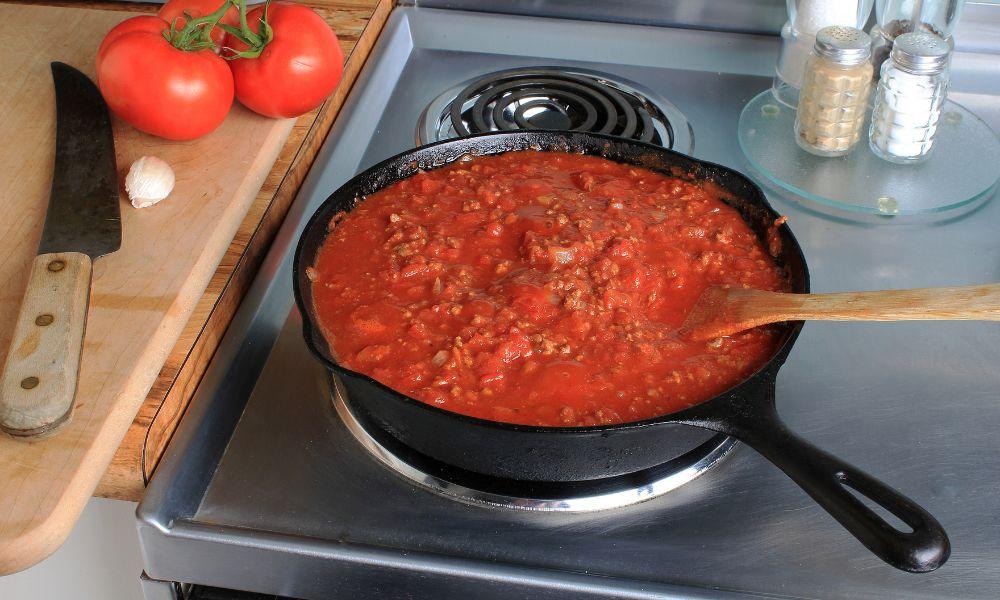
Now that you know how to spot a spoiled spaghetti sauce, let’s talk about best practices for storage and how to keep it fresh for the long haul.
Refrigeration
One of the simplest and most effective ways to store leftover spaghetti sauce is to keep it in the refrigerator. An airtight container will help preserve the flavor and freshness. Also, remember to cool the sauce completely before you store it, as this can prevent the growth of bacteria.
Freezing
Long-term storage of spaghetti sauce is possible with the help of your freezer. To freeze your sauce effectively and maintain optimal texture and taste, follow these steps:
- Allow the sauce to cool completely.
- Pour it into a freezer-safe container or freezer bag.
- Label the container with the date and type of sauce.
- Store it flat in the freezer, as this promotes even freezing and makes it easier to stack and organize containers.
Frozen spaghetti sauce can last for several months, making it an excellent option for those who like to meal prep or just want to have a delicious sauce ready at a moment’s notice.
Containers and Labeling
Whether you’re refrigerating or freezing your sauce, using the right containers is crucial. Opt for containers with airtight lids, preferably made of glass, as plastic can absorb flavors. Don’t forget to label your containers with the date and type of sauce, so you know precisely how long your leftovers have been sitting in storage.
Extending the Shelf Life of Spaghetti Sauce
Wouldn’t it be fantastic if we could wave a magic wand and make our spaghetti sauce last forever? Unfortunately, that’s not a reality. However, there are some techniques we can employ to boost its shelf life and keep it fresher for longer.
Canning
Canning is an age-old method of preservation that can help extend the life of your homemade spaghetti sauce. By following the correct canning procedures, you can make your sauce last for months, sometimes even years. The process involves placing your sauce into sterilized jars, sealing the containers with a vacuum seal, and heating them in a boiling water bath or pressure cooker. As the heated jars cool, a vacuum seal is formed, which helps keep bacteria and other contaminants at bay.
Additives and Temperature Control
Sometimes, adding a bit of extra acid, like lemon juice or vinegar, can help keep your spaghetti sauce fresher for more extended periods. Please note that this alters the taste, so use it sparingly and taste as you go.
Another vital aspect of extending the shelf life of your sauce is temperature control during preparation and serving. Providing the sauce is kept at a constant temperature while preparing and cooled quickly before storage, its shelf life will be significantly improved. Avoid leaving it out at room temperature for extended periods, as this can encourage the growth of bacteria.
FAQs
Can you use spaghetti sauce past its expiration date?
It’s essential to follow food safety guidelines and prioritize our health, so consuming spaghetti sauce past its expiration date is generally not recommended. If you’re unsure, check for any signs of spoilage, such as changes in color, texture, or smell. When in doubt, it’s better to be safe than sorry.
How long does spaghetti sauce last in the refrigerator?
Generally, leftover spaghetti sauce stored in an airtight container in the refrigerator can last for around 7 to 10 days.
Can you freeze spaghetti sauce to prolong its freshness?
Absolutely! Freezing spaghetti sauce is a great way to extend its life and enjoy it for months to come. Just be sure to use proper freezing techniques and containers to ensure freshness and prevent freezer burn. In the freezer, it can last up to 4-6 months.
What can I do with leftover spaghetti sauce?
Get creative with your leftover spaghetti sauce and try incorporating it into a variety of dishes, such as:
Using it as a base for a homemade pizza
Mixing it with other pasta shapes for a quick meal
Incorporating it into a delicious lasagna
Simmering meat or vegetables in the sauce for added flavor
Making stuffed bell peppers or eggplant parmesan
Conclusion
Now that you’ve become a spaghetti sauce expiration expert, you can confidently store your sauce and indulge in delectable pasta meals, knowing that you’re enjoying the freshest and most flavorful sauce possible. With these tips and techniques in your culinary arsenal, your pasta dishes will never be the same again. Embrace the full potential of your spaghetti sauce, and enjoy the satisfaction that comes from a truly delicious meal.
References
Below are some helpful resources to further explore the topics discussed in this article:
- NCHFP: How to Can Tomatoes
- FDA: Food Storage Safety Tips
- USDA: Refrigeration and Food Safety
- CDC: Food Safety Tips
- Healthy Canning: Processing Times for Spaghetti Sauces
- Serious Eats: The Best Way to Store Leftover Tomato Paste
- WebMD: Food Poisoning Treatment
- Joy of Cooking: Freezing and Reheating
- SafeFood: Is It Safe to Eat Expired Food?
